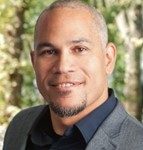Campus-community partnerships are integral to community-engaged learning, service-learning and similar pedagogies that extend project-based learning beyond the classroom into “real world” communities. Community-engaged courses have increased in prevalence in engineering education. Evidence suggests that they are effective at connecting engineering theory to practice, engaging students motivated to “make an impact,” and preparing students for global and multicultural collaboration. In community-engaged courses, campus partners (students, faculty, staff) and community partners (individuals or organizations from non-academic communities) collaborate on an engineering project that, if successful, benefits community members and contributes to student learning. However, partner relations are not always a primary focus, and partnerships can flounder and fail resulting in limited or imbalanced outcomes, dissatisfaction among partners, or even harm. Building upon documented principles for community engagement and frameworks such as critical service-learning, this paper directs attention to the relationships between campus and community partners as a crucial yet under-studied aspect of engineering community-engaged learning. We interviewed 22 campus and community partners involved in engineering projects spanning seven engineering colleges and five continents. The findings are presented in the form of a Partnerships Compass with guiding questions for nurturing partnerships that are both impactful (in achieving partners’ collective goals) and equitable (in attenuating power imbalances, unequal risks of harm, and outcome disparities between partners). Ultimately, the paper aims to provide a timely perspective and actionable tool for engineering instructors, students, and community partners who aim to jointly build enduringly equitable and impactful partnerships.
AUTHORS
|
|
|
|
|
|
|



